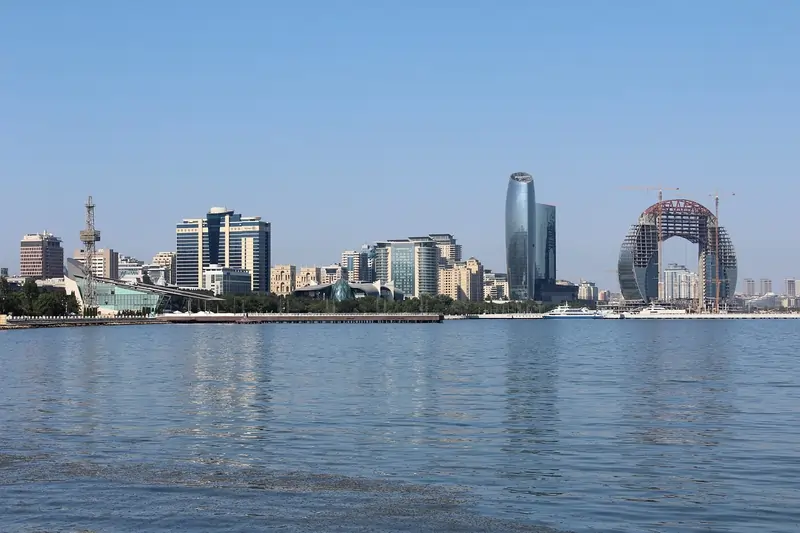Countries, NGOs and representatives from the private sector will come together in Baku for UNFCCC COP29 under the presidency of Azerbaijan, marking a critical milestone in the year for climate negotiations and campaigns.
Finance will be a key focus at COP29 and the main measure of success will be whether the world can unlock the necessary FUNDING to increase capacity for countries to achieve their climate goals.
2023’s Bilan mondial stated that ocean-based solutions are essential to addressing climate change and research commissioned by the Panneau Océan found ocean-based solutions can deliver up to 35% of the emission reductions needed to stay on a 1.5°C pathway. The urgency to bring the ocean into the conversation has never been more important.
Throughout the two weeks of COP29, events and activities will explore the critical ocean/climate nexus. Here are a few highlights to look out for:
1. National Leadership to Incorporate Ocean Acidification Across Mainstream Climate-Ocean Policy
Les organisateurs: UN Foundation, World Resources Institute, and the International Alliance to Combat Ocean Acidification, Ocean Panel
Ocean Pavilion, 13 Nov, 09:00-10:00
The event will showcase Leadership Circle government members’ efforts to incorporate ocean acidification science, mitigation and adaptation aspects across mainstream policy documents including: 1) NDCs and National Adaptation Plans, 2) Sustainable Ocean Plans, 3) Marine Strategy Framework Directive (for EU member states). RSVP
2. Our Ocean Conference Event
Les organisateurs: Greece, Republic of Korea
Greece Pavilion, 13 Nov, 10:30
A high-level discussion between the governments of Greece, Republic of Korea and U.S. discussing the outcomes from this year’s Our Ocean Conference in Athens, and a forward look to the 2025 conference in Busan in April.
3. Unveiling The Potential Transformation of Indonesia’s Blue Carbon as Nature-Based Solution to Climate Change Mitigation
Les organisateurs: Republic of Indonesia
Ocean Pavilion, 13 Nov, 10:30-11:30
As one of the most biodiverse countries in the world, Indonesia holds immense potential in leveraging nature-based solutions (NbS) that strengthen ecosystem resilience to meet its ambitious climate targets. Indonesia’s blue carbon ecosystems store an estimated 3.14 billion metric tonnes of carbon, but are under threat from human activities and climate change. This session will explore how Indonesia’s blue carbon initiatives can contribute to the nation’s climate goals and how partnerships and international initiatives can provide critical financing to support these efforts. By strengthening Blue Carbon NbS and integrating blue carbon into climate frameworks, Indonesia not only paves the way for its sustainable future but also sets an example for other nations in addressing global climate challenges.
4. UNFCCC: Insights from the 2024 ocean dialogue to drive climate ambition and finance
Side Event Room 8, Area B, 14 Nov, 11:30 – 13:00
A side event summarising the latest on the Ocean Climate Dialogue co-facilitated by Niall O’Dea from Canada and Julio Cordano from Chile.
5. Blue Thread: Aligning National Climate and Biodiversity Strategies
Les organisateurs: Ocean & Climate Platform, Blue Marine Foundation, Ocean Conservancy, the Nature Conservancy
Ocean Pavilion, 20 Nov, 15:00-16:00
Ocean-based solutions operate at the nexus of climate change and biodiversity loss, acting as a bridge across the Climate and Biodiversity Conventions. As countries are required to submit new, more ambitious strategies for climate and biodiversity, this event will discuss how to better integrate and align ocean-based solutions for more coherence and impact. Governments will be invited along with experts from civil society to share examples of best practices.
6. Accelerating Ocean-Climate Action Through 100% Sustainable Management
Australia Pavilion, 19 Nov, 15:00-16:00
Les organisateurs: Australia/Ocean Panel
This side event, hosted by the Australian government in collaboration with the Ocean Panel, aims to explore and strengthen the connections between international commitments and frameworks, including the Paris Agreement, Global Biodiversity Framework and the connections with SDG 14, to foster concrete actions towards 100% sustainable ocean management. Read more.
7. Turning the Tide: Translating ocean-climate ambition into action
Les organisateurs: United Kingdom, Nature 4 Climate, Ocean Panel
UK Pavilion, 20 Nov 18:00-19:30
The next round of NDCs represents a critical opportunity to translate growing ocean-climate ambition into tangible action ahead of COP30. This event will showcase tools, case studies, and best practices to enhance the role of marine nature-based solutions in climate change mitigation and adaptation. It will provide a space for policy makers to connect with and learn from peers and a variety of sources of expertise.
8. CLIMATE-OCEAN NEXUS: The Role of the Ocean in Carbon Neutrality
Les organisateurs: le Portugal
Portuguese Pavilion, 21 November, 13:30 – 14:15
This event, with the participation of the Secretary of Maritime Affairs, aims to discuss some topics as 1) the contribution of Marine Protected Areas as climate regulators; 2) the potential of natural capital and marine ecosystem services in innovative carbon management solutions and instruments; 3) new solutions and technological innovation in the ability to monitor the Ocean, and contributions to carbon balances and scientific knowledge of the impact of climate change on the marine environment; 4) restoration and protection of marine and coastal ecosystems in carbon capture and management; 5) national advances in production of ocean renewable energy and the importance of carbon neutrality; and 6) the decarbonisation of maritime transport and ports.


 Précédent
Précédent


